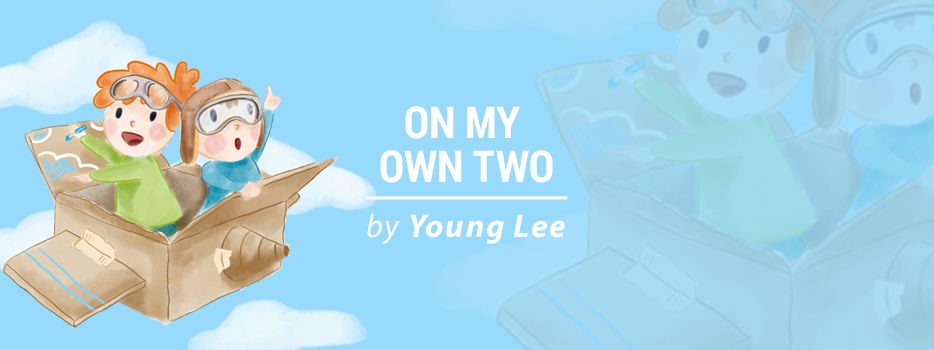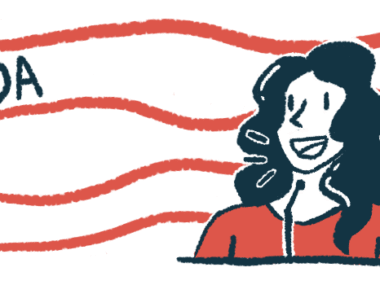When I Was a Kid, I Dreaded Gym Class
Written by |

Thoughts and memories of recess games and gym classes rolled into my mind last week as I flipped through the pages of “The Ables,” a young adult novel by Jeremy Scott. It’s a story about a group of kids and their adventures as members of a community unknown to the wider world, where everyone has superpowers.
In an early scene of the book, the blind protagonist and his small group of friends — all of whom are disabled in one way or another — argue about whether it is worth risking their self-esteem and social standing to participate in a series of schoolwide, super-powered competitions.
On one hand, none of them have much hope in doing well in a competition that so heavily values physical prowess — especially when the event pits them against their able-bodied classmates, superpowers notwithstanding. On the other hand, as the protagonist argues, they don’t have much to lose. And by participating, even if they don’t perform particularly well, they’d still fulfill a dream they all share.
It’s a compelling argument. And it’s an argument that feels familiar to me, because such sentiments weighed on my mind when I was a child pondering my participation in schoolwide sports, gym class, and recess.
Although I wasn’t shy about my Charcot-Marie-Tooth disease when I was a child, like many of the characters in “The Ables,” experiences with playground sports and gym classes did nothing to endear me to physical exercise and competition.
I think it may be different nowadays in many U.S. elementary schools, but when I was a kid, nearly every activity in gym class was a competition. And finding myself lagging near the end of the pack during every run, letting my team down in every relay race, and inevitably being “it” without ever being able to catch up with anyone else during games of tag were never fun. It was incredibly demoralizing.
This led to a lot of self-sabotage in gym class. For example, I would prefer to get knocked out early in dodgeball rather than remain in play.
The only playground activity I had any advantage in was kickball, because my ankle-foot orthoses would provide extra heft that allowed me to easily launch balls deep into the outfield. Sadly, though, my lack of speed largely negated any edge I had gained.
Thus, much of my elementary school recess time didn’t involve basketball or soccer like most other kids. Instead, I remember hanging out with other kids who didn’t care too much for outdoor sports. We spent our recesses excavating rocks, digging holes in sandboxes, and playing with the toads that lived on the playground — certainly not the most physical of activities.
When looking back, I can’t help but think that the only reason I got any meaningful exercise or extracurricular socialization during my grade school years was due to the effort of my parents, who signed me up for activities outside of school. In terms of my enjoyment of these activities, the results varied widely.
I enjoyed swimming and karate despite my middling performance. T-ball wasn’t a great success for me, as I never grasped the rules of the game the entire time I participated. And roller-skating was a mixed bag.
At least in the story of “The Ables,” the small group of friends eventually participates in the schoolwide competitions. And although their performances are a bit of a disaster, I love the tenacity Scott imbues in his protagonists. I think it takes a bit of that tenacity for many of us with CMT to pursue physical activities.
Although I know it’s unlikely I’ll ever be an example of peak physical prowess, I try to embody some of that can-do spirit. After all, when it comes to personal fitness, something especially important for CMTers, competition with yourself is more important than competing with anyone else.
***
Note: Charcot-Marie-Tooth News is strictly a news and information website about the disease. It does not provide medical advice, diagnosis, or treatment. This content is not intended to be a substitute for professional medical advice, diagnosis, or treatment. Always seek the advice of your physician or other qualified health provider with any questions you may have regarding a medical condition. Never disregard professional medical advice or delay in seeking it because of something you have read on this website. The opinions expressed in this column are not those of Charcot-Marie-Tooth News or its parent company, Bionews, and are intended to spark discussion about issues pertaining to Charcot-Marie-Tooth.






G
Very good article most people with CMT should be able to relate to ... I try to put my past CMT experiences behind me and just keep moving forward but as I age I do look for reasons why I acted a certain way in my past due to my physical limitations ... especially hard for me who has a twin brother who did not have CMT
Rob
Reminded me of my experiences in athletics in the 1950's and 60's, except I did not know why I was slower and could never learn to skip or rollerskate. Good job...thank you.
willem overmars
Thanks for this description of a youth with CMT1A. I would add the humiliating effect of being chosen as the very last one for the team for whatever sport by my classmates.
Later i was lucky to meet a wife who didn't suffer from my disabilities. She herself liked hiking.... but as I was not able to follow her, she easily changed to a sport we could do together. In my case canoeing, as my arms were less affected and relatively strong. My children enjoyed the long holidays living for weeks on beautiful natural rivers, camping on islands. And my wife, eventually did some wonderful hikes, but without me.